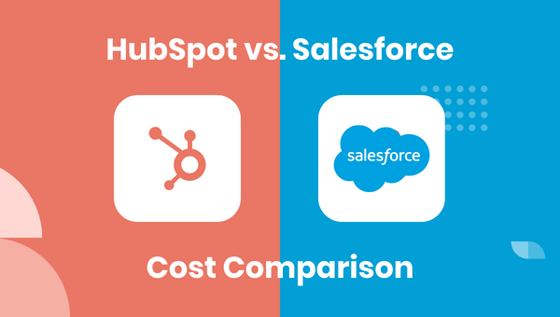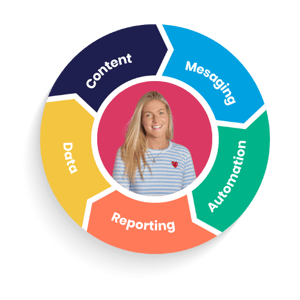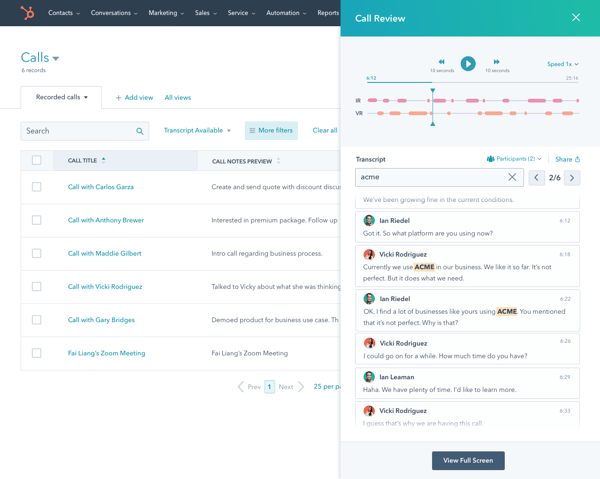






The world is experiencing a Crisis of Disconnection and we're entering a new era - the age of the connected customer.
Businesses need to address disconnected data and systems, disconnected customers, and disconnected people. Businesses need not just a CRM platform, but a connected CRM platform.
When reviewing CRMs, we usually see growing businesses look at two CRM platforms: HubSpot and Salesforce.
Core to the selection process is looking if the CRM's features meet your goals and needs, as well as comparing costs.
Now, both HubSpot and Salesforce offer pretty sophisticated features and capabilities. But, to experience steady growth, you need to select a platform that your team will adopt and will scale with you.
Overview
It makes sense to invest in a platform that promises exceptional customisation and advanced feature sets. But, It’s another circumstance to choose a platform that offers advanced functionality when your team doesn’t know how to use it to its full potential.
HubSpot
HubSpot offers an all-in-one solution. With 5 connected hubs, each with four pricing and feature tiers, the cost of HubSpot can vary. Additionally, be mindful that there are add-ons and contact tiers to consider. You can view each of these tiers and add-on prices here.
One of the biggest benefits of HubSpot is that the platform is built on one unified codebase with one consistent UI across all of its hubs for each department.
 The value here goes beyond aesthetics - the shared UI enables your team to access information cross-functionally, collaborate with the same understanding of your customer with a single record of activities, accomplish simple tasks with ease, and capture a unified view of your customer’s journey, all within one platform.
The value here goes beyond aesthetics - the shared UI enables your team to access information cross-functionally, collaborate with the same understanding of your customer with a single record of activities, accomplish simple tasks with ease, and capture a unified view of your customer’s journey, all within one platform.

You’ll gain free access to training and educational materials. Your organisation will be partnered with a HubSpot customer service manager in order to help you make the most of your investment.
You may choose to work with a HubSpot partner agency in order to help onboard the platform and you’ll be left with an enablement strategy that ensures you can continue leveraging HubSpot to your full potential, even as your organisation scales.
How does a crafted CRM impact total costs?
Salesforce
Salesforce is a complex CRM with advanced customisation and functionality that may work for 2,000+ employee companies that have deep pockets. But, this can come at a higher cost and/or with unknown hidden costs you weren't prepared for.
Salesforce built its advanced functionality through a series of acquisitions. Their platforms have a different look and feel to each of them, which also impacts the structure of your data across each platform.
Be prepared to dedicate resources to managing the system
Organisations that successfully deploy Salesforce must dedicate resources to set up and manage the system. Salesforce has built a robust third-party application marketplace. However, these often require developer support in order to build out the customisation features that your organisation will need to capture specific functionality.
With Salesforce, a select number of organisations that meet a specific total contract value are paired with a CSM. You will need to be reliant on your partner organisation for training and user adoption, not to mention a Salesforce admin to manage the platform.
Be prepared to add additional functionality
To access the functionality that your organisation needs, it’s likely that tier upgrades, license purchases, and in common cases, bespoke customisation will be required. In these scenarios, you are increasing the complexity and the cost of the solution. In the best case, the system can do what you want it to, but you will have overspent and the system will have a lot of fragilities.
For example, for further customisation, you now need additional dev resources and training. If your internal experts leave, you will then need to find and train another quickly! It’s going to hit your system functioning and also your pocket.
With each layer of customisation comes another set of data requirements and redundancies. You can quickly find a graveyard of information that will easily overcrowd your system and lead to low adoption rates.
Looking at the developer support, partner organisations, internal admins, and time to onboard, these costs alone can add up quickly.
If you need a CRM that can be customised to fit any use case you can think of, Salesforce should be on your list of comparable solutions. But, keep in mind, that level of customisation will come at a cost -- often a hidden cost.
Additional cost factors to consider
We mentioned earlier that salesforce was built through acquisition. The multi-point solution can result in low adoption rates, which will ultimately impact the quality of your data. When you have multiple point solutions, your team needs to learn how to use each one, your IT team needs to integrate them all, and your team is then left to navigate across tools/platforms
Bad data is costly for your organisation - it jeopardises customer experiences, leads to missed opportunities, or even churn. It even has a waterfall effect of impacting your marketing campaigns and the time your customer service team will need to dedicate to customers.
HubSpot's connected CRM
HubSpot on the other hand is easy to use and intuitive for end users. Think about what Apple did to consumer products like the iPhone, computer, and watch. They created an elegant UI that is intuitive at each step.
HubSpot’s easy-to-navigate UI doesn’t take away from its advanced functionality. For fast-paced or established companies, features like custom objects, programmable automation, and partitioning mean you don’t need to compromise on data structure and can keep your teams aligned. HubSpot provides full flexibility in managing the customisation of the platform.
As a HubSpot Elite Partner, we see that customers who adopt HubSpot’s all-in-one connected solution are able to leverage HubSpot as their single source of truth, onboard their team with ease, and leverage its advanced features to meet their sales, marketing and service goals.
To use the old saying “You say to-mato, I say tom-ato”, too many data points across multiple apps means that you are saying the same thing but in completely different ways. HubSpot’s customisation capabilities enable you to improve the accuracy of your data and translate your data points into a single legible format.
What this all comes down to is that your team will be more likely to adopt the platform from the get-go.
As an Elite HubSpot partner who has worked with organisations from 10-1500 employees, we’ve seen advanced HubSpot implementations get up in running within 6 weeks. Clients are enabled to use the platform to its full capabilities almost immediately. There’s no need to learn how to navigate 4 different interfaces… only 1 connected platform. From initiating onboarding of the platform to customisation, your team will be able to navigate and use the platform as your organisation scales.







